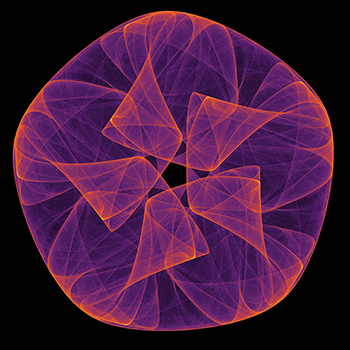
MRS/Kavli Future of Materials
Chair
Prineha Narang
Harvard University

Co-Chair
Thomas Devereaux
Stanford University
Day 1
Predicting optically-excited nonequilibrium dynamics in molecular systems and quantum materials
- Ab initio approaches to systems out-of-equilibrium and laser-dressed materials
- Similarities and differences in quantum chemistry and materials physics approaches to excited states
- What regimes are experiments probing?
Day 2
Computing excited-states in quantum materials and defects in solids
- Excited states in low dimensional materials, collective excitations and quasiparticles
- Defects in quantum materials under excitation
- Electron-phonon dynamics, TD-DFT/GW, open quantum system approaches
Day 3
Predicting new topological materials and transport in topological materials science
- New approaches in identifying and predicting classes of topological materials
- Quantum transport in topological matter including microscopics and phonon/electron hydrodynamics
- Predicting new non-equilibrium phases in topological materials
Program
Day 1 | June 15, 2021
Opening Remarks from the Organizers, the Kavli Foundation and MRS
Excited-states from a chemistry perspective
Speaker: Emily Carter, UCLA
Nonequilibrium dynamics from a condensed matter perspective
Speaker: Angel Rubio, Max Planck Institute for the Structure and Dynamics of Matter
Panel Discussion: Bridging across theoretical and computational materials physics, condensed matter and quantum chemistry approaches to excited-states and non-equilibrium dynamics
Panelists: Emily Carter, Angel Rubio, and Tom Deveareux
Moderator: Prineha Narang
“Pairing” Experiment and Theory: Regimes of non-equilibrium dynamics
Experimental statement of the “problem”, talks by A. Cavalleri and D. Basov
Experimental directions in photo-induced superconductivity and open questions
Speaker: Andrea Cavalleri, Max Planck Institute for the Structure and Dynamics of Matter
Experimental probes of dynamics in quantum matter
Speaker: Dmitri Basov, Columbia University
Computational materials science approaches to dynamics in quantum matter
Non-perturbative and non-equilibrium dynamics
Speaker: Eugene Demler, Harvard University
Non-equilibrium dynamics from an atomistic perspective
Speaker: James Rondinelli, Northwestern University
“Short” Talks
Speakers: Vedika Khemani, Stanford University | Kenneth Burch, Boston College | Martin Claassen, University of Pennsylvania
Lightning Talks
Speakers: Jon Curtis | Johannes Flick
Panel Discussion: Incorporating ab initio and model Hamiltonian approaches to non-equilibrium dynamics that access experimentally realizable regimes.
Panelists: Eugene Demler, James Rondinelli, Vedika Khemani, Dmitri Basov, and Kenneth Burch
Moderator: Tom Deveareux
Day 2 | June 16, 2021
Optical excitations in quantum materials from first principles
Speaker: Giulia Galli, University of Chicago
Transport approaches
Speaker: Nicola Marzari, EPFL
Excited-state dynamics
Speaker: Diana Qiu, Yale
Panel Discussion: Advances and breakthroughs needed in computational materials science to capture excited-states, transport and interactions with the lattice.
Panelists: Giulia Galli, Nicola Marzari, and Diana Qiu
Moderator: Prineha Narang
Open quantum systems approaches in materials science
Speaker: David Mazziotti, University of Chicago
Exciton and spin dynamics in two-dimensional systems from first-principles
Speaker: Yuan Ping, UC Santa Cruz
TBA
Speaker: Felipe Jornada, Stanford University
Electron and ion dynamics in materials due to particle radiation and optical excitation
Speaker: Andre Schleife, University of Illinois Urbana-Champaign
Lightning Talks
Speakers: Kade Head-Marsden | John Philbin
Panel Discussion: First principles quasiparticle and open quantum system approaches in computational materials science
Panelists: David Mazziotti, Yuan Ping, Felipe Jornada and Andre Schleife
Moderator: Tom Deveareux
Day 3 | June 17, 2021
The focus of day 3 is on computational and theoretical methods to describe an exciting new class of materials: Dirac and Weyl topological semimetals. In the past five years, the study of topology as it relates to physical systems has exploded. Work in topological condensed matter physics escalated in the early 2000s with the predictions of topologically protected states of matter, and the subsequent experimental discoveries of topological insulators in real two- and three-dimensional material systems made it a rapidly growing topic. Semimetals that host Weyl and Dirac fermionic excitations, condensed matter analogues of high-energy excitations, as well as chiral crystals which allow for new fermionic excitations that have no high energy physics counterparts, are each an interesting system in their own right. Many remarkable properties of these topological materials may be described as being distinct consequences of the chiral anomaly, a well-known phenomenon in relativistic quantum field theory. Interestingly, Weyl nodes can be induced or moved energetically in a material by driving with electromagnetic radiation; this presents a unique opportunity in non-equilibrium control of topological materials. Signatures of unconventional transport in these systems have also ignited substantial debate in the community.
Topological materials discovery
Speaker: Claudia Felser, Max Planck Institute for Chemical Physics of Solids
Non-equilibrium behavior of topological materials
Speaker: Gil Refael, California Institute of Technology
Transport and dynamics in topological materials
Speaker: Ady Stern, Weizmann Institute for Science
Panel Discussion: Advances and breakthroughs needed in computational materials science to predict and understand topological materials away from equilibrium. Bonus: transport in topological materials.
Panelists: Claudia Felser, Ady Stern, Gil Refael and Maia Vergniory
Moderator: Prineha Narang
Ab initio approaches in topological materials science
Speaker: Arun Bansil, Northwestern University
Lightning Talks
Speaker: Lukas Muechler, Flatiron Institute
Closing Remarks
